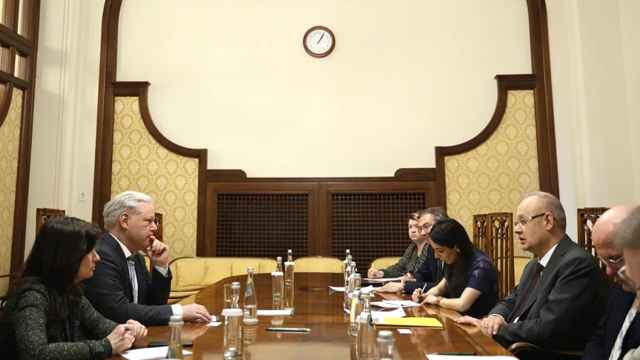
Elena Naumenko
HR Director, Recruitment & Global Mobility,
KPMG
Today's labor market is forcing employers to come up with ever newer measures in the fight for talented professionals. Some are one-off initiatives, while others have become regular fixtures. In recent times, more and more employers, both Russian and international, have been making use of a new tool for strengthening their employer brand and attracting talented young people: case competitions, where young professionals propose solutions to business cases. So what exactly is a case competition? Let's start by defining what a business case is. Most commonly, it covers a specific business situation requiring management solutions from a company's management team. The competition participants' task is to come up with such solutions. This format is especially relevant for students in economics, financial and management courses, as well as for marketing and public relations specialists, although in practice, case competition participants come from a much broader range of fields: students studying technical disciplines, law students and many others enjoy taking part.
Case competitions are held by companies from absolutely different fields of industry as well: FMCG, IT, pharmaceuticals, audit and consulting, and so on. Companies wishing to organize their own case competition can use the services of an external provider, who will be fully responsible for the advertising campaign, attracting and selecting the participants, finding a venue, the catering, etc., or they can do everything themselves. Sometimes employers hold case competitions in partnership with some other entity, such as their country's most famous theater.
But what do employers and young professionals get out of this? Is it worth getting involved? First of all, case competitions are also very useful for employers. They are one of the recruiting tools that help them to identify talented students and invite them to work for them. More often than not, the jury in such competitions consists of employees of the company (and not infrequently even of senior managers), who have the chance to assess their potential colleagues and to test their analytical and presentation skills, level of English and ability to work as part of a team. Quite often at the end of a case competition the company makes a job offer to several participants at once, and sometimes to dozens. Case competition participants tend to be students from their country's top higher education institutions who are fluent in English, active and enquiring — the kind of people that every employer today is fighting to attract. A case competition is an excellent opportunity to find the best of the best. In addition, holding an in-house case competition can help to strengthen a company's employer brand and to increase recognition.
Students and recent graduates, in their turn, get many benefits from participating in case championships. They get an opportunity to "have a go at the real thing," and also to try out the working environment typical in whatever field, be it consulting or marketing — in other words, to play the role of a specialist at the company in question. More often than not, case competition assignments are taken from actual company practice, or are as close as possible to real-life challenges. With FMCG companies, the case might relate to the launch of a new product, or to rebranding. At consulting firms, it might be reminiscent of work on a particular engagement in a specific industry — for example, a case study on a merger of two companies. Competition participants get the chance to prove themselves in conditions as close as possible to those they can expect to find in their future professional career, and to find out how suited they are to such a style of work. Another advantage students get out of taking part in case competitions is that it gives them something else to put on their CV: many employers value participation in such contests, and winning or reaching the final even more so.
With minimal work experience, or even none at all, the main bargaining chips for young professionals are their education and various "extracurricular" activities, meaning that case competitions are right up their street, as they give them the most relevant experience. Finally, of course, students are often motivated by the attractive prizes on offer from the employers — e.g., many companies offer a simplified selection process for job vacancies and internships as prizes, allowing the competition finalists and/or winners to skip one or more stages, or even to qualify automatically for an internship. Other valuable prizes, such as the latest electronic gadgets, can be pleasant extras. A chance to get an all-expenses-paid trip to the international final of the competition in somewhere like Brazil or Hong Kong may seem even more attractive to students. In international competitions, the opportunity for students to meet their peers from different parts of the world, to share experiences, and to meet senior managers from the company in an informal setting and ask them questions and make useful business contacts is becoming especially important. Finally, of course, the competitions produce vivid, never-to-be-forgotten memories, with which it is good for a company to be associated.
The Employment section did not involve the reporting or the editorial staff of The Moscow Times.A Message from The Moscow Times:
Dear readers,
We are facing unprecedented challenges. Russia's Prosecutor General's Office has designated The Moscow Times as an "undesirable" organization, criminalizing our work and putting our staff at risk of prosecution. This follows our earlier unjust labeling as a "foreign agent."
These actions are direct attempts to silence independent journalism in Russia. The authorities claim our work "discredits the decisions of the Russian leadership." We see things differently: we strive to provide accurate, unbiased reporting on Russia.
We, the journalists of The Moscow Times, refuse to be silenced. But to continue our work, we need your help.
Your support, no matter how small, makes a world of difference. If you can, please support us monthly starting from just $2. It's quick to set up, and every contribution makes a significant impact.
By supporting The Moscow Times, you're defending open, independent journalism in the face of repression. Thank you for standing with us.
Remind me later.





